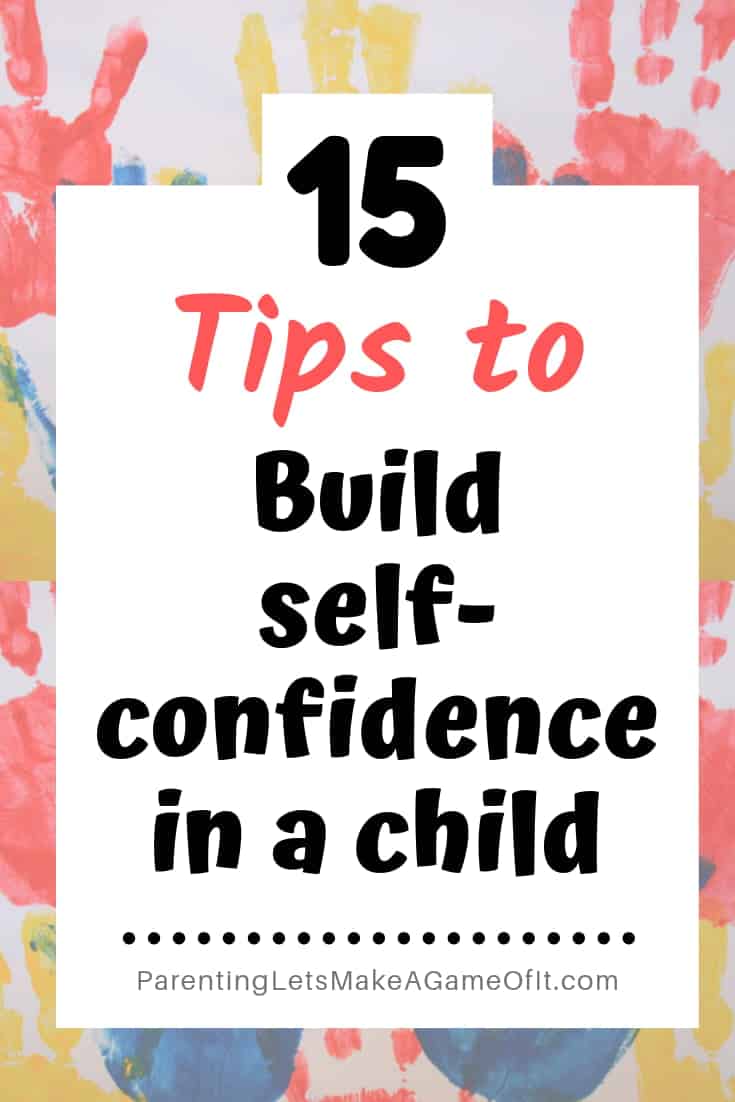As parents, we wonder how to build self-confidence in our child with positive self-esteem. Who better to ask than an educator who has worked with thousands of children.
 Meet Director of Education Heidi Smith Hyde. For over twenty-eight years, Heidi Smith Hyde has been immersed in the field of education. Heidi is a director of education at a religious school in the Boston area, working with toddlers through teenagers. A graduate of Brandeis University and Harvard Graduate School of Education, she’s a well-respected leader in the community.
Meet Director of Education Heidi Smith Hyde. For over twenty-eight years, Heidi Smith Hyde has been immersed in the field of education. Heidi is a director of education at a religious school in the Boston area, working with toddlers through teenagers. A graduate of Brandeis University and Harvard Graduate School of Education, she’s a well-respected leader in the community.
Below are Heidi’s simple but profound tips for raising confident kids. You can read her full interview at the end of this post.
|
Make Parenting Easier—and More Fun! Parenting can be rewarding, and we love our kids. But let’s face it, we don’t love the power struggles. If you want your child to cooperate, make parenting a game with Parenting—Let’s Make a Game of It. Instead of yelling, learn playful ways to stop struggling with your toddlers and school-age kids. Spark your playfulness—in only 5 minutes. |

15 Tips to How to Build Self-Confidence in a Child
1. Follow the advice of author Alan Cohn: “It’s important to put away your to-do list and take out your TO-BE list.” Children (and parents) sometimes need to JUST BE.”
2. Make every moment count because the time with your child is precious.
3. Realize that you’re part of your child’s journey.
4. Never underestimate the difference you can make on a child’s life.
5. Appreciate children and let them know their presence matters.
6. Understand that what you do and say makes an impact.
7. Keep your promises.
8. Be consistent—children take notice!
9. Show respect to earn respect.
10. Remember that children are evolving souls, so we must tread carefully even when they try our patience.
11. Build a relationship by engaging in conversation. This means turning off the TV during dinner and taking the opportunity to talk.
12. Be available to support children when they’re sick, upset or sad.
13. Listen to understand a child’s thoughts and feelings.
14. Make children feel like valued members of our community, and that their voices are heard.
15. Get children involved in social action. It’s a great way to gain perspective and feel more connected.
Empower Your Child
Another way to build your child’s confidence is to reduce conflict in the household. Power struggles are unpleasant for kids as well as parents. You can turn everyday frustrating situations into fun learning experiences that empower your children and connect your family.
|
Empower Your Child and Put the Fun in Parenting! ♥ Makes parenting easier ♥ Empowers kids ♥ Connects families Want your child to cooperate? Learn how to make parenting a game and say goodbye to power struggles. Learn how with Parenting—Let’s Make a Game of It, an entertaining book of 5-minute stories that teaches playful parenting playfully. An Amazon #1 New Release in 7 parenting categories, it’s perfect for busy parents. Only $7.99 (eBook) and $9.99 (paperback) on Amazon. |
Want More Parenting Tips?
How to be a Fun, Playful Parent… in Less Than a Minute (Like Mary Poppins)
An Interview with Educator Heidi Smith Hyde
This is part of my “Tips from the Pros” series, where I interview professionals who work with children. You’ll benefit from their years of experience as they share helpful advice.
What’s Your Background?
For many years, I worked as an academic advisor at Northeastern University, where I counseled at-risk freshmen. When our eldest son was born, I decided to pursue part-time work by becoming a religious school teacher and family education coordinator. This job grew into a full-time director of education position.
It worked out nicely because as our sons grew, so did the job!
Our sons are now twenty-six and twenty-nine years old. In my spare time (is there such a thing?) I write children’s books detailing the Jewish immigrant experience in America and abroad. Feivel’s Flying Horses is a National Jewish Book Award Finalist, and Mendel’s Accordion is a Sydney Taylor Notable Children’s Book and winner of the Sugarman Award for Best Jewish Children’s Book.
How Do You Work with Families and Children?
As the full-time director of a busy religious school, I have the privilege of working with teachers, parents, lay leaders, and children ranging in age from three-year-old through high school. I take each aspect of my job very seriously.
Of course, the children come first. This means making sure they receive an excellent education and meeting their spiritual and emotional needs.
But it’s equally important to nurture my relationship with the parents because they know their children best. I keep in constant communication to ensure that their children are enjoying their religious school experience.
Another goal is to encourage parents to be active members of the community.
Finally, my work with teachers is crucial—they are in the trenches, educating the children. At the same time, teachers are also learners who require mentorship and support. It’s a balancing act.
What Are Some Key Parenting Challenges?
The biggest challenge is learning how to live happy and healthy lives while fulfilling our daily responsibilities.
Kids have a lot on their plates. In addition to the day-to-day challenges of homework, extra-curricular activities, and the ups and downs of friendships, kids deal with social media, terrifying news events, and peer pressure.
Many parents work full-time and do their best. They shuffle kids to and from activities, manage homework, help navigate friendships, explain the scary news, try to get kids to do chores, and do many more things. It’s a lot while trying to live happy and healthy lives.
How Can Parents Overcome These Challenges?
It’s all about relationship building. This may seem trivial, but it’s important. Each day at religious school, I greet the children and parents at the door. In addition to welcoming them with a big smile, I say to each student, “Have a good class!”
At the end of the day, I stand outside and talk with the students until their parents and caregivers arrive.
During the week, kids are often exhausted from their busy day at elementary school. If they’ve had a bad day, they bring their “baggage” with them. Would some of them rather be home? Absolutely! But our time together is precious, and I want every moment to count.
What’s Important to You?
I want our students to know that they’re welcomed at our religious school. The teachers and I are happy to see them. Religious school should be an oasis—a place to cultivate friendships, learn about values, and engage in social justice work together. Our students deserve a positive experience.
It’s important for kids to know that their presence matters. We appreciate their commitment and contributions.
I can’t ease their homework burden or control what’s happening outside our school walls. What I can do is ensure that our students feel like valued members of our community. Their voices are heard.
Do You Have an Example?
Recently, one student was having emotional difficulties and felt disconnected. After a long talk, I discovered that he was interested in helping hungry people. At this time, the school was involved in a can drive, with a hefty goal of collecting 360 cans for a local food pantry.
Then I had an idea. He could be our food donation ambassador! When I asked if he was interested, he smiled and jumped at the opportunity. Each week, he counted and organized all of the collected cans. He visited each classroom, reminding everyone to bring more cans to school.
Social action helps us “get out of our heads” and be involved in something meaningful. This may not seem significant, but it meant a lot to this student. We need to build relationships and be supportive when children are sad, upset, or lonely.
Is There Anything Else?
Never underestimate the impact that you have on a child’s life. As an educator, there’s nothing more exciting than seeing my “grown-up” students. One former student’s child is now enrolled in our pre-school program! And some are even our religious school teachers.
You are a part of a child’s incredible journey. What you do or say has an impact. Remember that children will soon be adults. As parents, the days seem interminable, but they DO grow up.
Trust me, you will even miss carpooling kids to and from activities. You’ll miss those conversations.

I’m so glad that I found this post because my daughter started a new school and her self-confidence is low. I LOVE the “to be” list! I’ll definitely work on this. Thanks!!!!!!!
Starting a new school is always challenging. I hope these tips help bring your daughter more confidence. Yes! I also liked the “to be” list. Thanks for reading and commenting. Best of luck with your daughter with the new school year.